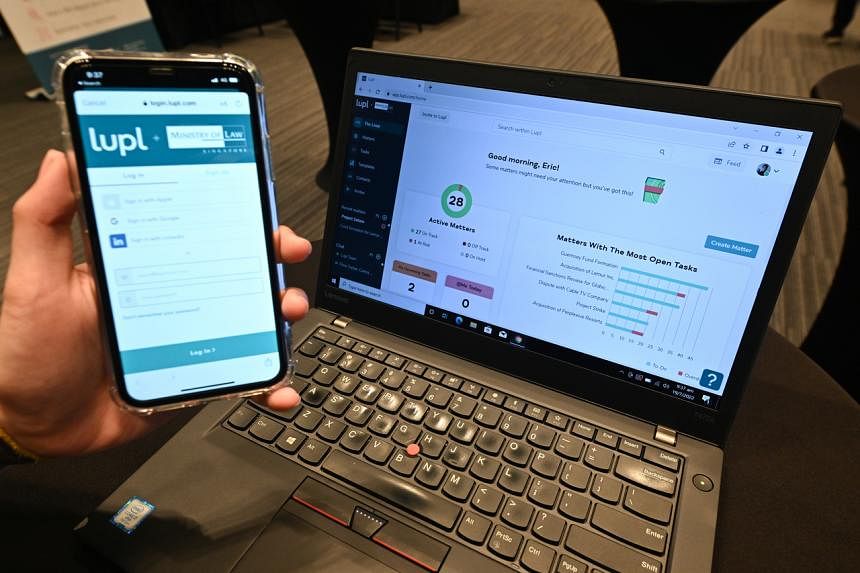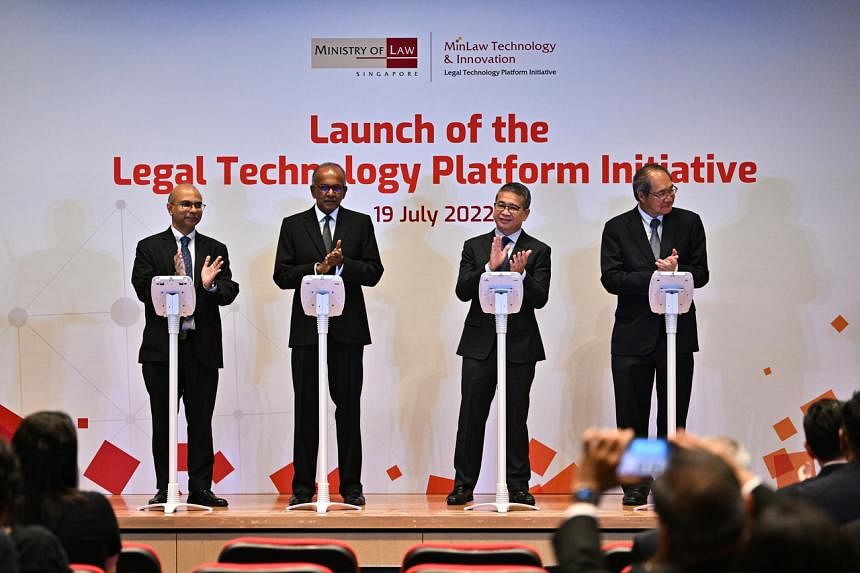SINGAPORE - Lawyers at Albakri LLC often had trouble sending documents with huge file sizes to their clients securely, as the software they were using made it cumbersome to do so.
But the issue was resolved after the firm adopted a new technology platform supported by the Government earlier this year, said its managing director Muslim Albakri.
“We (now) have... an open channel of communication with our clients directly,” he said.
“It is as simple as uploading (the documents) to the channel, and the clients then have immediate access (to the files).”
The Legal Technology Platform was officially rolled out at the Supreme Court on Tuesday (July 19) after being unveiled at a soft launch in February.
The platform is jointly developed by the Ministry of Law (MinLaw) and tech firm Lupl, with feedback from over 100 lawyers from various practice areas taken into consideration.
It is aimed at helping Singapore law practices streamline their day-to-day workflow, including administrative aspects such as tracking the time each lawyer spends on a case and managing client bills, and free up time for their lawyers to focus on substantive work matters.
The platform seeks to help small and medium law practices, which may face resource constraints in adopting legal technology, with digital transformation. But it is also available for use by bigger law firms and in-house lawyers in companies.
Law Minister K. Shanmugam, who was present at Tuesday’s event, said the basic aim of the platform is to increase lawyers’ efficiency and productivity.
Noting two popular legal technology solutions for managing cases that are being used by law firms here, Tessaract and Clio, he said: “We have integrated both into the (platform) so that users... who have these systems can access key client information and record the time they spend on cases more quickly.”
The platform is accessible through an Internet browser, such as Google Chrome.
Matter templates for different types of cases, which set out details such as timelines and steps to take, are available on the platform.
Such templates are useful as they help reduce the risk of lawyers missing any steps when working on the matter, which may be fatal to the case itself, said Mr Rajesh Sreenivasan, who heads the technology, media and telecommunications practice at law firm Rajah & Tann.
“You click on the template, the matter opens, and all of the checklists are automatically populated,” he said.
Details of an existing legal matter, such as its status and deadlines of tasks, will be displayed on the platform.
Lawyers can link the platform to other popular digital solutions they are using, such as Google Drive, and access any documents or information stored there. The platform is also connected to popular messaging app WhatsApp, for lawyers to communicate and share links to documents with their clients from a single platform.
On Tuesday, MinLaw said it would help law firms defray the initial costs of adopting the platform and other integrated legal technology tools.
Under this funding initiative, which is supported by Enterprise Singapore and the Infocomm Media Development Authority, eligible law firms will need to pay only $21 per user every month for the first two years, compared with the usual subscription cost of $69 per user each month.
MinLaw said there were plans to include additional features in the platform, for instance, links to other online services such as legal research portal LawNet and Supreme Court system e-litigation.
It has set up a committee, currently comprising 10 lawyers from a range of practice areas, to provide feedback and suggest improvements to the platform.
The ministry will also work with the Law Society of Singapore to organise a series of outreach and training events about the platform for lawyers.
In his speech on Tuesday, Mr Shanmugam noted that clients of law firms now expect legal services to be provided digitally, remotely, and around the clock.
“The last two years of the Covid-19 pandemic have only increased those expectations because people can see that work can be done in that way,” he said.
In an interview with members of the media on Monday, Second Minister for Law Edwin Tong said the biggest obstacle in getting the legal sector to digitalise was the mindset of industry players.
“It was never really about (the product), it was always about adoption, about mindset, about the philosophy of wanting to use it,” he said.
Mr Tong said the platform might not have got the same reception if it was introduced five years ago. But the pandemic accelerated the adoption of technology and remote working in the industry.
“And once we had a shift in the mindset... we took the opportunity to move fast,” added Mr Tong.



